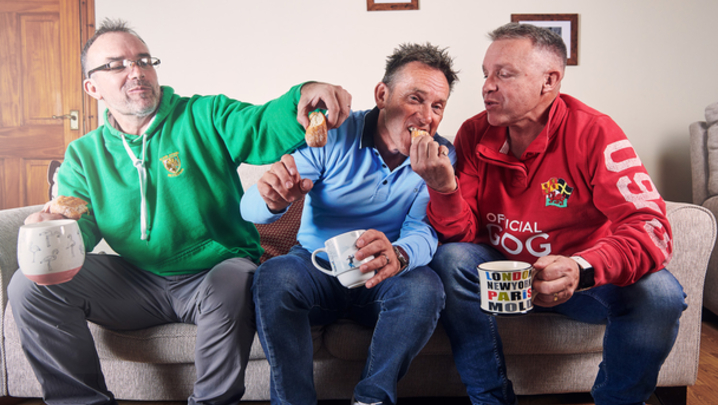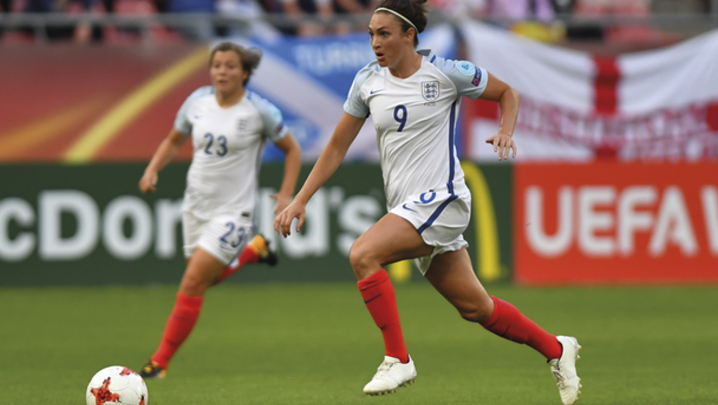Broadcasters are thinking laterally to fill the chasm left by Covid-19’s damage to the sporting calendar, reports Matthew Bell
Welcome to the great British summer of no sport. There will be no Wimbledon, no Euro 2020 football, no Open golf and no Olympics, which leaves the sport broadcasters on the canvas.
Punch drunk they may be, but no one is throwing in the towel. The challenge is to fill the hours of telly set aside for sport this summer and to attract the bumper audiences being enjoyed elsewhere on TV during the lockdown.
Live sport has not disappeared entirely – Taiwanese basketball and baseball anyone? – but there is not much of it about.
“We’re a channel that’s been built on live sports and [coronavirus] has hit us particularly hard,” admits Simon Downing, head of factual and sport UK at Eurosport. Its key sports – cycling, tennis, snooker and motorsports – and, this summer, the Tokyo Olympics are all in hibernation.
“We want to find innovative ways to represent these [sporting] pillars, first by revisiting archive but also finding ways of offering a fresh perspective.”
During the last week of May, Eurosport will revisit the London Olympics. Different sports will be featured daily as long jumper Greg Rutherford and cyclist Bradley Wiggins, among others, offer retrospective commentary on their gold-medal-winning performances. “It seems a lifetime ago,” says Downing, “but never has it felt more right to return to 2012.”
Athletes will film themselves using Zoom. So don’t expect the picture quality of a normal linear broadcast but, during the lockdown, audiences are hungry for content, even if it is wobbly and grainy.
The BBC’s approach fits the template of the other major broadcasters: wherever a live event is missing, it is offering a like-for-like replacement to “remind people of the great things that sport can do and, we hope, will do again very soon”, Philip Bernie, head of TV Sport, tells Television.
“We are doing our best to sate the appetite of sports fans, by showing some great sports from the past and adding in some lively comment.”
The BBC can’t hope to fill the hundreds of hours not being taken up by a real summer of sport, but it is planning “at least a daily dose” during the Olympics and Wimbledon weeks, including a “celebration of the wonder that is Andy Murray over one of the Wimbledon weekends”, adds Bernie.
E-sports are booming during the lockdown, and multinational broadcaster Eleven Sports is featuring virtual cycling, motor sports and football in its territories around the world.
The company’s CEO, Luis Vicente, says: “This is an unprecedented challenge for the sports media industry but we want to make sure we’re there for fans, to offer them some fun and some entertainment at a time they need it more than ever.
“To do this without our usual offering of premium live sport is obviously a challenge but we need to be innovative and experiment with new things. That means a big focus on e-sports.”
Eleven is also responsible for covering the aforementioned live basketball and baseball in Taiwan, which have played out in empty stadia. It has made coverage available around the world through Twitter and Twitch, attracting more than 7 million views during one week at the end of April.
Nevertheless, if the content is right, e-sports can attract huge audiences, too. Almost 5 million viewers tuned in to ITV’s Virtual Grand National 2020. It used CGI animation and algorithms to find a winner – Potters Corner, which won the real Welsh Grand National last year – for the cancelled Aintree race.
Eurosport and the BBC are also experimenting with e-sports, and Eurosport’s Downing says: “If these gain traction, we may consider them once the lockdown is over.
“[The crisis] is forcing us to think differently and allowing us to try things that normally we wouldn’t have a chance to do because the schedules are populated with contracted content.”
Documentaries can help to fill the vacuum left by live events. Netflix’s Formula 1: Drive to Survive, which follows the previous year’s racing and is now into its second season, has won rave reviews for capturing the sport’s high-octane drama. But it is impossible to make similarly high-end docs from scratch during the lockdown.
Sky is making the most of films from its NBCUniversal partners, with an impressive roster in May, including docs about Usain Bolt and Conor McGregor, as well as a Sky original on Tiger Woods. But, more than anything, it is football – the UK’s national sport – that is being missed.
In sport, it’s the hope that gets you. Your football team may be four-nil down, but dreams of an improbable comeback never die. This pretty much sums up the state of the current season. At the time of writing, only Belgium and the Netherlands have declared their domestic seasons over; around the rest of Europe, fans hope that, somehow, seasons can be brought to a natural end. Broadcasters feel the same.
Both Sky Sports, which holds the majority of Premier League live rights, and BT Sport, home to the Champions League, allowed customers to pause their sport subscriptions when coronavirus ended live sport.
Early June is the current target for a resumption of the Premier League; for fans needing a quicker fix, the German Bundesliga could return, behind closed doors, in May, with BT set to show live Saturday afternoon football – banned in normal times to avoid a clash with UK matches – for the first time in many years.
In the meantime, Sky Sports has launched The Football Show, featuring its usual match-day pundits, such as Gary Neville and Graeme Souness, speaking from their living rooms. It has also been raiding its archives for classic matches to include in Premier League Retro.
The BBC and ITV, too, are missing football; in their cases, June and July’s Euro 2020 tournament. But Match of the Day, which celebrates its 56th birthday this summer, remains on air with Gary Lineker at the helm.
Match of the Day: Top 10, a podcast featuring Lineker, Ian Wright and Alan Shearer discussing old Premier League matches from the safety of their homes, has averaged 1.9 million listeners over its Saturday-night run, not much lower than the 3.2 million enjoyed by MOTD earlier in the season when there was actual football to show.
The BBC is planning for the possible resumption of domestic football this summer, something the Government is pushing for hard in a bid to cheer up the nation, or the footie-loving part of it, at any rate.
“When it does return, it won’t be returning in the same way as it left, with 50,000-strong crowds and all the apparatus of broadcasting we used prior to the coronavirus crisis,” says the BBC’s Bernie. “We have to see how we will be allowed to broadcast. It’s going to be a really big challenge to space people in galleries and outside broadcast trucks. We’re doing a lot of thinking to make it work.”
Bernie adds that the BBC is not looking beyond the summer: “At the moment, we’re trying to cover the current scarcity, which is testing enough.”
As the summer unfolds, more sport could return. Formula One’s British Grand Prix at Silverstone is set to
go ahead – without spectators – in mid-July. Champions League football could resume in early August, with the delayed Tour de France due later that month. But, like football scores, this is impossible to predict with any certainty.
At least the summer’s biggest events – Euro 2020 and the Olympics – are not being lost, merely delayed a year. “All being well,” says the BBC’s Bernie, “the next two summers should be absolutely extraordinary and packed with wonderful sport.”






